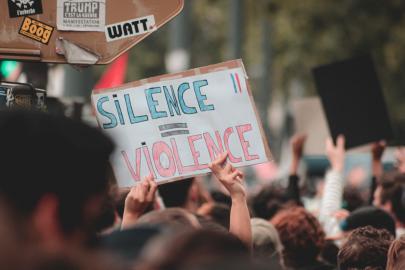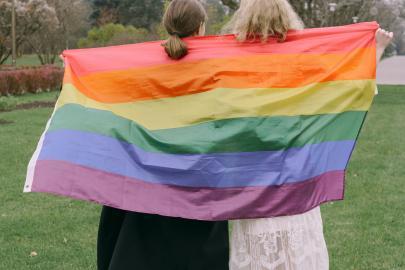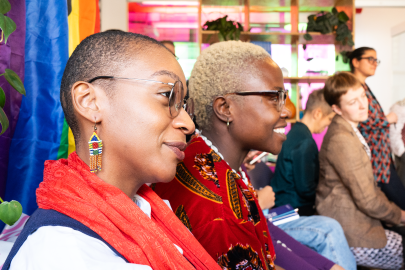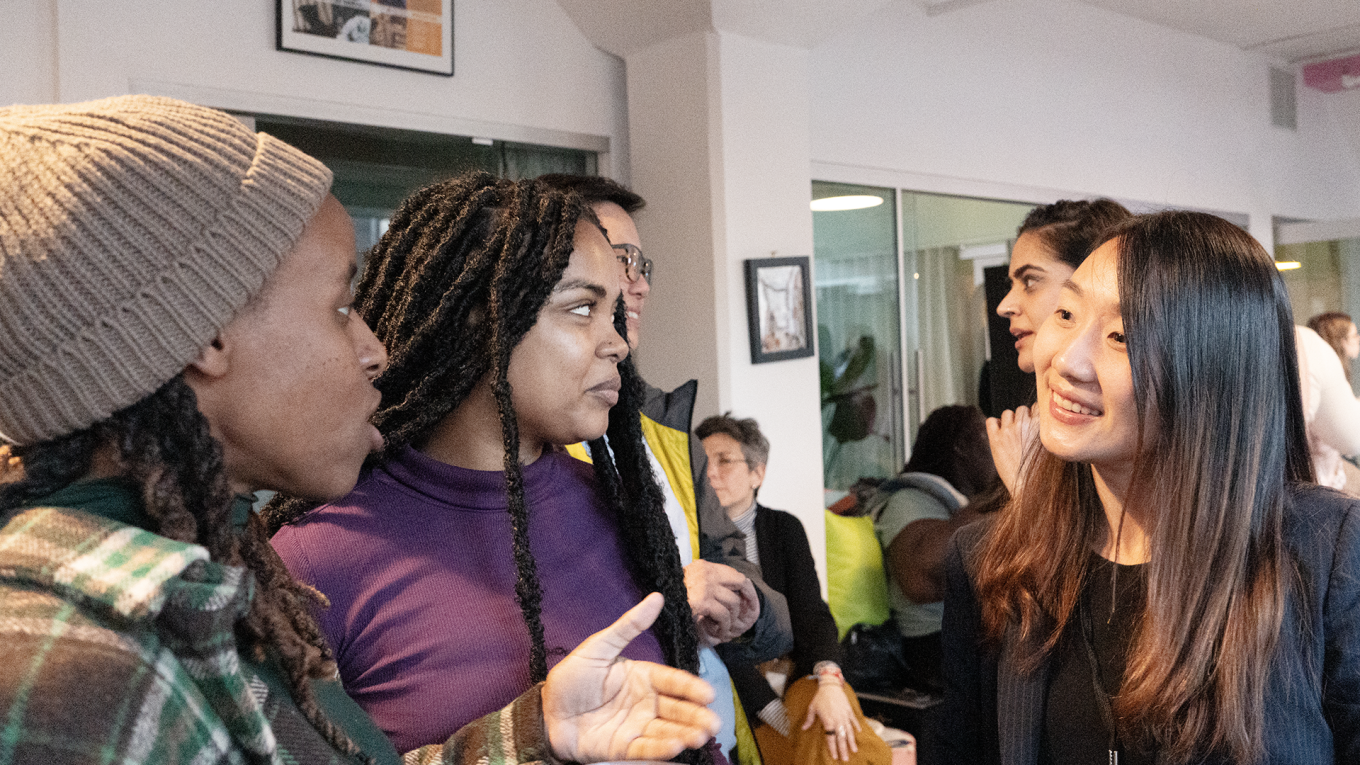
What is the Global Lesbian, Bisexual, and Queer (LBQ) Program?
The Global LBQ Program is Outright International’s initiative to support lesbian, bisexual, and queer (LBQ) communities worldwide. The program accomplishes this through advocacy, research, grant-making, increased visibility, and strengthening leadership capacity.
Key Points
- LBQ people face multiple forms of discrimination that limit access to education, work, healthcare, and safety.
- Outright is LBQ-founded and LBQ-led, with over 30 years of work advancing LBQ rights and visibility worldwide.
- The organization believes LBQ equality is essential to full gender and LGBTIQ equality.
Goal
To build a world where LBQ people are safe, visible, and free, and where their voices shape global movements for equality and justice.
Focus on LBQ Communities
At Outright, we use LBQ as an inclusive term that refers to lesbian, bisexual, and queer women, including cisgender, transgender, and intersex women, as well as non-binary and gender-diverse people who identify with or have affinity to LBQ experiences and communities.
We recognize that language is constantly evolving and that no single term can capture the full richness and diversity of people’s identities and lived experiences. We are also aware that people around the world use different languages and concepts to define themselves as communities, and that translations are often imperfect.
LBQ is used not as a term to delineate boundaries, but rather as a tool to establish common ground — connecting the experiences of women and of queer people, and reflecting forms of organizing, community, and solidarity that exist at the intersections of gender and sexuality.
LBQ people confront compounding forms of discrimination, including misogyny, homophobia, and heteronormativity. Power dynamics and social norms expose them to a unique set of human rights violations, including particular risks of violence and discrimination in accessing education, health care, housing, employment, and family formation. Data on the experience of LBQ people is scarce, which negatively impacts the visibility of LBQ issues and their relevance in advocacy agendas. Consequently, the rights and issues of LBQ people are radically underserved and under-resourced, and LBQ people remain underrepresented in leadership roles.
Outright believes that a strong LBQ movement is essential to advancing human rights for all LGBTIQ people and improving all women's lives.
Outright’s Commitment to LBQ Communities
Outright International is an LBQ-founded and LBQ-led organization, and it has been intentional about having LBQ women at the highest levels of leadership, which has informed our initiatives throughout the organization’s history and continues to do so today.
Our commitment to LBQ issues and LBQ visibility is reflected in decades of programming, research, and campaigns that support and prioritize LBQ communities.
Here are some examples of Outright’s unwavering commitment to LBQ issues.

Fourth World Conference on Women in Beijing, 1995.
In 1995, the organization played a key role in organizing the "Lesbian Tent" at the Fourth World Conference on Women in Beijing, a groundbreaking moment for lesbian visibility in the international women's rights movement and a milestone in the history of LGBTIQ rights.
In 2000, our publication on how sexuality is used to attack women’s organizing was enthusiastically received at a UN-sponsored 5-year anniversary of the Beijing conference.
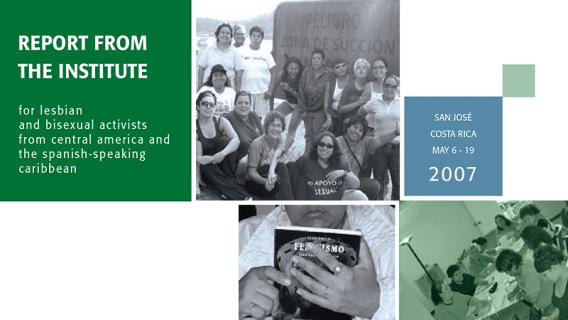
Report cover image, 2007.
In 2007, Outright held the Latin American Human Rights Advocacy Institute for emerging lesbian and bisexual women leaders.
In 2012, the Gays and Lesbians of Zimbabwe (GALZ), with Outright’s support, wrote and submitted a shadow report on the systemic discrimination experienced by LBQ and trans women in Zimbabwe and presented it at the United Nations.
In 2012, Outright, with partners in five Southeast Asian countries, conducted a large-scale study of violence against lesbian, bisexual women, and transgender people. The issue, long a taboo subject, was addressed at a panel at the 56th session of the United Nations Commission on the Status of Women in March 2012.

In-person training session, 2019.
In 2019, Outright International started a partnership with Caribbean LBQ-led organizations and established the project “Frontline Alliance: Caribbean Partnerships Against Gender-Based Violence.”
In February 2023, to mark the one-year anniversary of the full-scale invasion of Ukraine — and ahead of Women’s History Month — Outright International shared the stories of lesbian, bisexual, queer, and allied activists running shelters, distributing food and medicine, and supporting the fight for Ukraine’s independence and democracy.
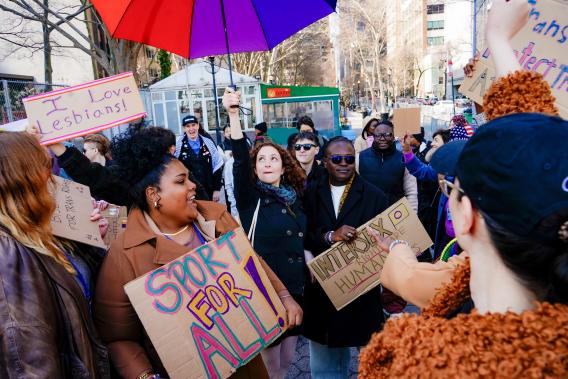
Protest on the 30th anniversary of the lesbian tent, 2025.
With the Beijing+30 Lesbian* Tent in 2025, Outright honored the heritage of the original Lesbian Tent, and created an impactful series of protests, panel discussions, and networking events for all lesbian, bisexual, queer, trans, and intersex women and non-binary people at the United Nations Commission on the Status of Women.
Outright’s Work to Support LBQ Activism
For three decades, Outright has placed LBQ visibility and advocacy at the center of our mission—through research, campaigns, and programs across every region.
LBQ Advocacy
We advocate for legal and policy change for LBQ people by supporting activists’ access to the United Nations and other decision-making spaces. In particular, we advance LBQ visibility at the United Nations Commission on the Status of Women (CSW). Beyond CSW, Outright engages with UN treaty bodies such as the Committee on the Elimination of Discrimination against Women (CEDAW). We also work to foster cross-regional advocacy connections among LBQ activists. In July 2024, we published a guidance document on global advocacy and research priorities identified by LBQ activists from all regions.
LBQ Research
Recent groundbreaking reports focused on LBQ women, published by Human Rights Watch and the Human Dignity Trust, have highlighted research and knowledge gaps regarding LBQ women and the intersecting forms of discrimination they face. Our LBQ-focused reports contribute to the evidence base on issues such as online gender-based violence affecting LBQ women in Asia, the experience of queer women in Iraq, and the status of LBQ and trans women in Sri Lanka, and provide our partners with advocacy tools. Outright is also contributing to the knowledge and resources on global LBQ activism by examining the position of LBQ women and organizations within larger LGBTIQ movements around the world.
LBQ Grant-making
Outright supports LBQ groups and organizations and LBQ-focused projects with grants through several programs. Through our LBQ Connect program alone, we funded 63 projects in 44 countries, distributing USD 726,105. Thematically, projects funded by LBQ Connect reflected the breadth of LBQ priorities. Health initiatives addressed gaps in sexual, reproductive, and mental health services.
Research and advocacy on gender-based violence shed light on the unique vulnerabilities of LBQ women and pushed for protective policies.
Other projects focused on family recognition, economic empowerment, and safe community spaces. Many combined these areas, underscoring the intersectional realities of LBQ lives.
LBQ Leadership
We strengthen the skills and networks of emerging LBQ leaders, including through We Connect, a global virtual learning and mentorship program designed to support lesbian, bisexual, queer, trans, intersex, and nonbinary advocates. Building on the experience of the LBQ Connect program , this initiative centers an intergenerational, feminist, and intersectional approach to leadership and movement building.
LBQ Visibility
We ensure that LBQ leaders are more visible and raise awareness of LBQ issues and priorities among various audiences. Since 1995, Outright’s Felipa de Souza award has honored many prominent LBQ leaders, activists, and thinkers, including individuals such as Lepa Mladjenovic, Nancy Cárdenas, Rauda Morcos, Karen Atala, Yasemin Öz, and Gloria Careaga. We enhance LBQ visibility through LBQ-focused campaigns, podcast series, and commentaries. Through our advocacy work, we ensure that policymakers are informed about the specific needs and experiences of LBQ communities and how to address them. Additionally, we strive to make LBQ activists visible leaders and advocates in international fora. In our fundraising efforts, we raise awareness among donors on the underfunded needs of LBQ communities.
Project Spotlight: LBQ Connect
How LBQ Connect came to be
The launch of the LBQ Connect program in 2022 was a milestone in Outright's commitment to LBQ communities. LBQ Connect was the first global multilingual program for lesbian, bisexual, and queer women, including cisgender, trans, and intersex women and all non-binary or genderqueer people on the gender spectrum who relate to an LBQ identity. The program strengthened LBQ activists’ skills, created networks and connections across regions, supported LBQ-focused programs, filled gaps in knowledge, and increased awareness and visibility in media and advocacy spaces.
Outright International launched the program in March 2022 after consultations with more than 30 LBQ activists from all world regions. We ran the program for three cycles until the United States government terminated funding for the program in the beginning of 2025. You can learn more about the impacts of U.S. foreign assistance cuts on LGBTIQ people worldwide in Outright International’s report, Defunding Freedom: Impacts of U.S. Foreign Aid Cuts on LGBTIQ People Worldwide,(2025).
In its three cycles, the program connected 300 LBQ activists from 90 countries, mainly from the Global South and East. LBQ Connect comprised four main components that were strongly interconnected: learning and mentorship, grant-making, research and documentation, and advocacy.
How the LBQ Connect was structured
The learning and mentorship components focused on strengthening the skills and capacities of LBQ activists through a range of training opportunities, workshops, and peer learning sessions, building solidarity and connection among different generations, forms of activism, and regions of the world, thereby contributing to a stronger ecosystem within the global LBQ movements. The program grant-making shifted the focus from the individual to the movement level. The grants supported LBQ-focused projects of different kinds, such as the establishment of new LBQ groups or strengthening existing organizations; mainstreaming of LBQ agendas in non-LBQ-focused organizations (LGBTIQ, feminist, human rights, etc.); alliance building with other movements and organizations around key issues; planning and implementation of advocacy strategies and LBQ-focused research initiatives. Over three program cycles, we supported 63 projects in 44 countries, distributing 726,105 USD. The LBQ Connect grant report provides an overview of the projects we supported and the main lessons learned from three years of LBQ-focused grant-making.
Our supporters and collaborators
Despite shifting resources, Outright remains steadfast in advancing LBQ people’s human rights and inclusion worldwide.
Our LBQ work has been supported by the Lesbian Equity Fund, LesbianGlobal, Channel Foundation, Lesbians for Good, Linksbridge Foundation, Horizons Foundation, among other donors. Thanks to the support of funders who prioritize supporting LBQ activism, we continue to advocate, research, fund, and uplift LBQ communities—because the fight for equality is not complete until LBQ people everywhere are safe, visible, and free.
Latest News and Commentaries
Killing of Three Lesbians in Argentina Signals Need for Attention to Anti-LBQ Violence
LBQ Connect •
Argentina |
Amplifying Evidence on LBQ Lives During Women’s History Month
LBQ Connect • Gender Based Violence •
Global |
